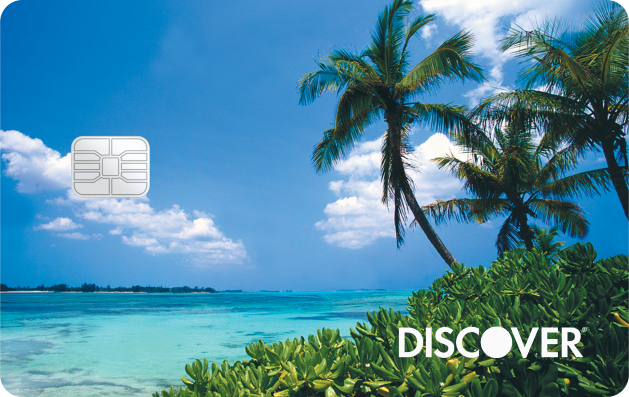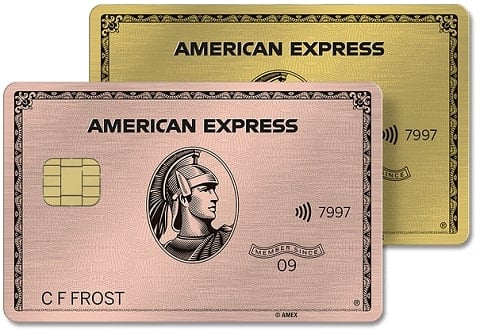Barclaycard Arrival Plus Review: Closed to Applicants, but Flexible if You Have It
The Bottom Line
4.1
It's no longer available, but current cardholders get a high rewards rate on all purchases, along with flexible redemption. Just be aware that you don't get the perks of a dedicated airline or hotel card.


Rates, fees and offers
Rates, fees and offers
Annual fee
$0 intro for the first year, then $89
Rewards rate
2 miles per dollar
Bonus offer
Enjoy 70,000 bonus miles after spending $5,000 on purchases in the first 90 days
Intro APR
0% intro APR on Balance Transfers for the first 12 billing cycles
Ongoing APR
APR: 18.24%-25.24%, Variable
Cash Advance APR: 27.49%, Variable
Balance transfer fee
Either $5 or 3% of the amount of each transfer, whichever is greater
Foreign transaction fee
0% of each transaction in U.S. dollars
More details from Barclays
More details from Barclays
- Enjoy 70,000 bonus miles after spending $5,000 on purchases in the first 90 days
- Earn unlimited 2X miles on every purchase
- NEW - Control Your Card - Instantly secure your accounts by locking your cards with Barclays SecurHold™, plus set transaction limits and block certain purchase categories for you or your authorized users. Available only on the Barclays mobile app.
- Book travel your way—no airline, seat or hotel restrictions—and redeem your miles for travel statement credits
- Get 5% miles back to use toward your next redemption, every time you redeem
- No foreign transaction fees
- International Chip and PIN for use at self-service chip terminals around the world
- Miles don’t expire as long as your account is open, active and in good standing
Pros and Cons
Pros
High rewards rate on all purchases, not just bonus categories
Sign-up bonus
No foreign transaction fee
Cons
Has annual fee
Minimum redemption required for travel
Detailed Review
» This card is no longer available
The Barclaycard Arrival Plus® World Elite Mastercard® is no longer accepting applications. See our best travel credit cards roundup for other options. Below is our review of the card from when it was still available.
• • •
Sometimes a solid card with fewer frills is a superior one. That's the case with the Barclaycard Arrival Plus® World Elite Mastercard®, a relatively simple travel rewards credit card with a high flat rewards rate, flexible travel redemption rules and a modest annual fee. However, as of 2019, this card is no longer taking new applications.
Existing cardholders have been able to keep and continue using it, though, and as of November 2022, the option to transfer rewards to several travel partners was introduced.
There's a no-annual-fee version of this card, with less robust perks, called the Barclaycard Arrival™ World Mastercard®. But it, too, has stopped accepting new applications.
Barclaycard Arrival Plus® World Elite Mastercard®: The basics
Card type: Travel.
Annual fee: $0 intro for the first year, then $89.
Rewards: Unlimited 2 miles per dollar on all purchases. Each mile is worth 1 cent when redeemed for travel or 0.5 cent when redeemed for cash back.
When you redeem miles, you get 5% of those miles back toward your next redemption. You can start redeeming for travel with 10,000 miles, or 5,000 miles for cash back.
Redeem miles for almost any travel purchase of $100 or more, including airfare, hotels and cruises. Go online within 120 days of booking with your card and apply your miles for a statement credit.
Interest rate: 0% intro APR on Balance Transfers for 12 billing cycles, and then the ongoing APR of 18.24%-25.24%, Variable
Foreign transaction fees: None.
Balance transfer fee: $5 or 3% of the amount of each transfer, whichever is greater.
Other features: Chip-and-PIN capability.
Not sure whether paying the annual fee makes sense for you? Try our calculator and see whether the rewards you earn on the Barclaycard Arrival Plus® World Elite Mastercard® will cover the fee.
Compare to Other Cards
Benefits and Perks
Good ongoing rewards rate
Earning an unlimited 2 miles per dollar spent, at a value of 1 cent per mile, is solid because it applies to all spending, not just spending in certain categories, such as travel, restaurants or supermarkets, which you find with other cards. So that means a great rewards rate whether you’re shopping online, paying for furnace maintenance or covering a doctor copay. Better yet, the 5% redemption bonus when you cash in miles — good toward a future redemption — boosts the effective rewards rate to 2.1%. This simple-but-lucrative rewards rate for all spending makes the card a candidate for top-of-wallet status.
It used to be harder to find a card that earned 2X on all purchases, no matter the category. But today, several other cards exist on the market that do just that. The Capital One Venture Rewards Credit Card earns 2X on every purchase with no limit for a similar annual fee.
Flexibility
Barclays has a liberal definition of “travel purchases,” giving you a lot of options for redeeming your miles, including spending with airlines, hotels, timeshares, campgrounds, car rental agencies, cruise lines, trains and buses, among others. And book however you want — directly with an airline or hotel, or through a travel agent or discount travel site. As long as you pay with the card, you can reimburse yourself with miles. That’s more flexible than travel credit cards that force you to book through the issuer’s travel portal to get the best rewards value. And it will appeal to budget travelers who prefer comparing travel deals from a variety of places. There are no blackout dates, restrictions or extra fees, as there can be with redeeming frequent flyer miles, for example.
Ease of use abroad
Like any good travel card, the Barclaycard Arrival Plus® World Elite Mastercard® has no foreign transaction fees. Plus, the card has chip-and-PIN capability. When traveling abroad, you may find that some kiosks and other automated payment systems require you to use a PIN to verify your identity, rather than a signature (though this requirement is not as common as it used to be).
Transfer partners
Barclays closed the Barclaycard Arrival Plus® World Elite Mastercard® to new applicants in 2019, but as of November 2022 it added the ability to transfer miles to a host of travel partners. An odd addition to a card that is no longer open to new applications, it nevertheless gives current cardholders more options for redeeming their miles. However, the transfer ratio of Barclays points is inferior to other programs whose points largely transfer at a 1:1 ratio.
Transfer partner | Conversion ratio |
|---|---|
Qantas Frequent Flyer | 1.3:1 |
EVA Air Infinity Mileage Lands | 1.3:1 |
Air France-KLM Flying Blue | 1.3:1 |
Aeromexico Club Premier | 1.3:1 |
Etihad Guest | 1.3:1 |
Intermiles | 1.3:1 |
Air Canada Aeroplan | 1.6:1 |
JAL Mileage Bank | 2.1:1 |
Drawbacks and Considerations
High redemption threshold
The card has a minimum redemption for travel statement credits of 10,000 miles, or $100, which you'd have to spend $5,000 on the card in order to earn. For smaller spenders, it could be a long wait to accumulate enough miles to redeem. The minimum is 5,000 miles for other redemption options and 2,500 if used toward the card’s annual fee.
As an alternative pick, the Barclaycard Arrival Plus® World Elite Mastercard® has a doppelganger card: the Capital One Venture Rewards Credit Card. It also earns an unlimited 2 miles per dollar on most purchases, and it also allows you to redeem your miles for a statement credit against travel purchases. The doesn’t offer the 5% redemption bonus, but it also doesn't have a minimum redemption requirement. So if you want to redeem miles for an $8 cab ride, you can.
The Capital One Venture Rewards Credit Card has an annual fee of $95 and a nice sign-up bonus: LIMITED-TIME OFFER: Enjoy $250 to use on Capital One Travel in your first cardholder year, plus earn 75,000 bonus miles once you spend $4,000 on purchases within the first 3 months from account opening - that’s equal to $1,000 in travel. It doesn't charge a foreign transaction fee, but it also doesn't offer chip-and-PIN.
Low-value redemption alternatives
For cashing in miles, this is mostly a one-trick pony. You get a penny per mile for statement credit that offsets travel purchases, or for paying the card’s annual fee. You get half as much value — or less — if you redeem miles for cash back, gift cards or merchandise. You can now transfer miles to some travel partners, but the ratios are poor.
If you want better value when transferring points, you may be better off with a card like the Chase Sapphire Preferred® Card. It earns bonus rewards in a variety of popular spending categories, including dining and travel. You can redeem points to book travel through Chase. You can also transfer your points to several major frequent travel programs at a 1:1 ratio. Transfer partners include United, Southwest, British Airways, Marriott and Hyatt. The Chase Sapphire Preferred® Card offers a comparable sign-up bonus: Earn 75,000 bonus points after you spend $5,000 on purchases in the first 3 months from account opening. But it does have a slightly higher annual fee: $95.
Fewer travel freebies and perks
The card’s simplicity is also a potential drawback. It doesn’t offer the perks that some travel cards do, such as airport lounge access or reimbursement for TSA Precheck or Global Entry applications. And while you can use miles to pay for checked-bag fees on airlines, airline co-branded cards often give you checked bags for free, along with early boarding. Similarly, you can use miles from this card on hotel stays, but you won’t get the automatic free nights that some co-branded hotel credit cards offer.
How To Decide If It's Right For You
The Barclaycard Arrival Plus® World Elite Mastercard® isn't taking new applications. But if you're an existing cardholder who's still satisfied with its simple but valuable rewards program — which can easily make up for its annual fee — it makes sense to keep it around. You can always supplement it with a premium travel card if you want to enjoy more luxury travel perks. But for those weary of paying an annual fee, it may be time to retire the Barclaycard Arrival Plus® World Elite Mastercard® and get a good $0-annual-fee travel card instead.
Looking For Something Else?
Methodology
NerdWallet reviews credit cards with an eye toward both the quantitative and qualitative features of a card. Quantitative features are those that boil down to dollars and cents, such as fees, interest rates, rewards (including earning rates and redemption values) and the cash value of benefits and perks. Qualitative factors are those that affect how easy or difficult it is for a typical cardholder to get good value from the card. They include such things as the ease of application, simplicity of the rewards structure, the likelihood of using certain features, and whether a card is well-suited to everyday use or is best reserved for specific purchases. Our star ratings serve as a general gauge of how each card compares with others in its class, but star ratings are intended to be just one consideration when a consumer is choosing a credit card. Learn how NerdWallet rates credit cards.
About the author

Gregory Karp
Senior Writer


